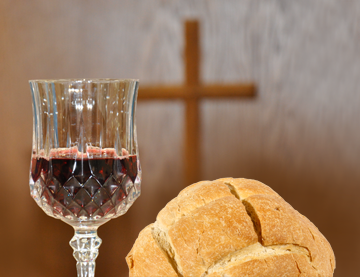Supervised Lord’s Supper


Each month Faith in Focus, the official magazine of the Reformed Churches of New Zealand, has a column entitled “Letters from New Zealand.” This column features historical correspondence from D.G. Vanderpyl, a long-serving elder in the RCNZ and, at one time, their stated clerk. The February 2018 issue sees Vanderpyl commenting on the supervision of the Lord’s Supper in the RCNZ. He notes (writing in September 1978) that the RCNZ practices “closed communion.” The elders supervise admission to the table and only those admitted by the elders are permitted to partake.
Vanderpyl shares a number of reasons why Reformed churches have a closed Lord’s Supper with supervision by the elders:
Elders have the responsibility to superintend (shepherd) the Church of Jesus Christ to see that all things are done decently and in order, 1 Cor. 14:40, Acts 20:28-31, 1 Thess. 5:12-13, Heb. 13:17, and 1 Peter 5:1-4.
Open communion means that the session [a.k.a. consistory] must measure with two different standards: Local members are under the continuous disciplinary supervision of the session while the visitors are permitted to come to the Lord’s Table without any exercise of supervision on the part of the session.
At open communion elders have no prior knowledge of who partakes of the sacrament, which allows for the possibility that visiting communicants may not have made a credible profession of faith earlier, may be living in open sin, or may even be under discipline elsewhere, all of which desecrates the Lord’s Table.
Open communion contradicts the Church Order, Articles 66 and 91 (Reformed Church of Australia), which specify that the session must ascertain whether those who come to the Lord’s Table are qualified to do so, namely, those who have professed their faith publicly and who are in good standing in the church.
Open communion contradicts the necessity of discharging and receiving members in orderly fashion by means of a letter or certificate from sister churches.
Open communion contradicts the commandments of love (Matthew 22:37-40) which indicate that, in order to love God and the neighbour properly, concern for the neighbour should include that he not be guilty of eating or drinking judgment upon himself (1 Cor. 11:27ff.).
Open communion prevents conscientious members from exercising their right to come to the Lord’s Table because they do not wish to share responsibility for an improper celebration of the Lord’s Supper (1 Cor. 11:30ff.).
All good reasons worthy of our consideration! The continued practice of closed communion in churches like the CanRC and FRCA is not, historically speaking, idiosyncratic or arbitrary.


